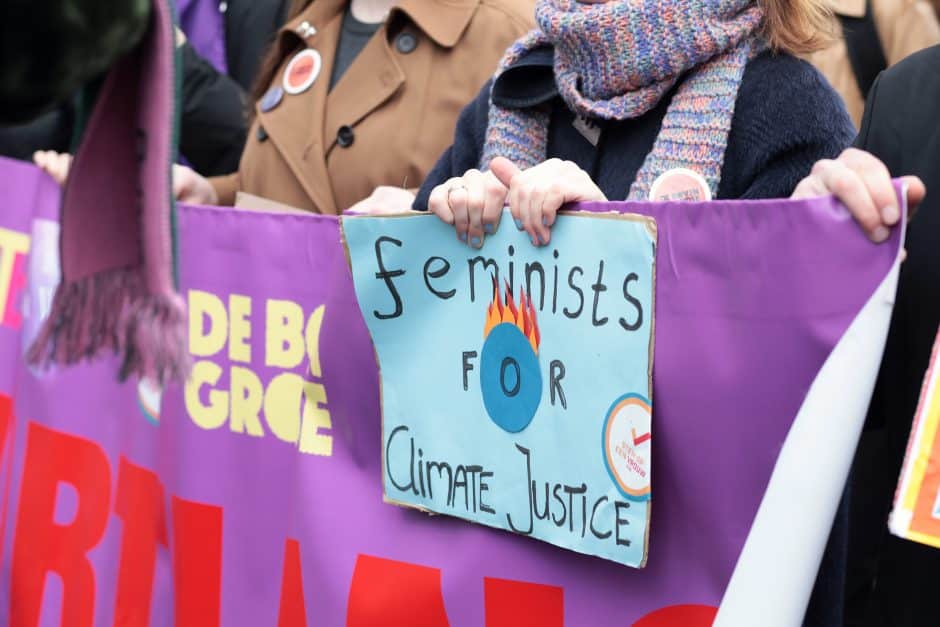Climate KIC expands its gender mainstreaming work with seven global programme partners

Women, and other gender minorities, will be disproportionately impacted by the climate crisis and yet their knowledge and expertise have been marginalised at every level. According to the UN, women’s representation in national and global climate negotiating bodies remains below 30 per cent.
In the innovation and entrepreneurship space, there are three times as many men entrepreneurs as women and this is reflected in the marginal VC-funded investment in women-founded start-ups across the world. This is despite the fact that women-founded start-ups tend to be more financially sustainable, generate more revenues and have more of a sustainable and socially conscious focus than that of their men counterparts.
Following last year’s success of the pilot programme for gender mainstreaming in climate entrepreneurship, Climate KIC and Irish Aid are excited to announce the next round of partners they will be supporting to address gender inequity in climate innovation.
Seven entrepreneurship support organisations from across Africa and Latin America will receive funding and tailored capacity development so they can better understand and implement gender mainstreaming into their programmes, and in turn, enhance support for women and other gender minorities in their networks.
To address gender inequity in the climate entrepreneurship space, Climate KIC has been working on a range of programmes to help partners identify gaps in their understanding of gender inequity and implement concrete actions to embed a gender lens into every aspect of the organisation’s work.
A big part of this work is supported by our WeClim Equally handbook, which enables entrepreneurship support organisations to conduct a review of their internal policies and then take steps to ensure women are equally represented in their programmes, communications, hiring and policies.
Wallis Grant, current Gender and Entrepreneurship Lead at Climate KIC, said: “We cannot achieve a climate-resilient future without the experience and expertise of women and other gender minorities. I’m very excited that we’re supporting a diverse and talented group of partners who are making huge strides to mainstream gender in their organisations and to see the impact of this ripple out into their local communities.”
Meet the partners:
Asociación 2811 (Colombia) will support women and non-binary founders to strengthen their skills and knowledge in climate resilience and innovation topics, as well as support them with business model development, pitching and business scaling, and the integration of gender-smart climate business frameworks.
Cleantech Hub (Colombia) will build on their work from last year’s programme to further develop its ‘inclusive climate entrepreneurship’ programme to address unconscious gender biases, promote diversity, equity, and inclusion (DEI) in entrepreneurial teams, and ensure that climate innovations are evaluated in a gender-neutral manner.
Kenya Private Sector Alliance (KEPSA) (Kenya) aims to develop a comprehensive toolkit and practical manual that addresses gender-related challenges within the waste value chain.
Nigeria Climate Innovation Centre (Nigeria) will conduct gender mainstreaming training for their staff and experts they work. This will in turn support their G5 accelerator which aims to take a hands-on approach in supporting women founders with developing their business ideas.
Renewable Energy Business Incubator (Rebi) (Uganda) plan to use a targeted communications approach that is tailored towards women-founded start-ups to increase the number of women in their programmes.
Ripple tech (Kenya) will conduct gender bias and gender mainstreaming training internally in their organisation, as well as carry out a survey of their communities to understand barriers to entrepreneurship. They will use this information to re-design their programmes in a gender-smart way
Westerwelle Foundation (Tanzania) will deliver an accelerator for women and youth entrepreneurs in their local communities to develop their business and pitching skills, as well as grow their knowledge on climate resilience and adaptation topics.
Want to learn more about our work on gender and entrepreneurship? Write to: wallis.grant@climate-kic.org
